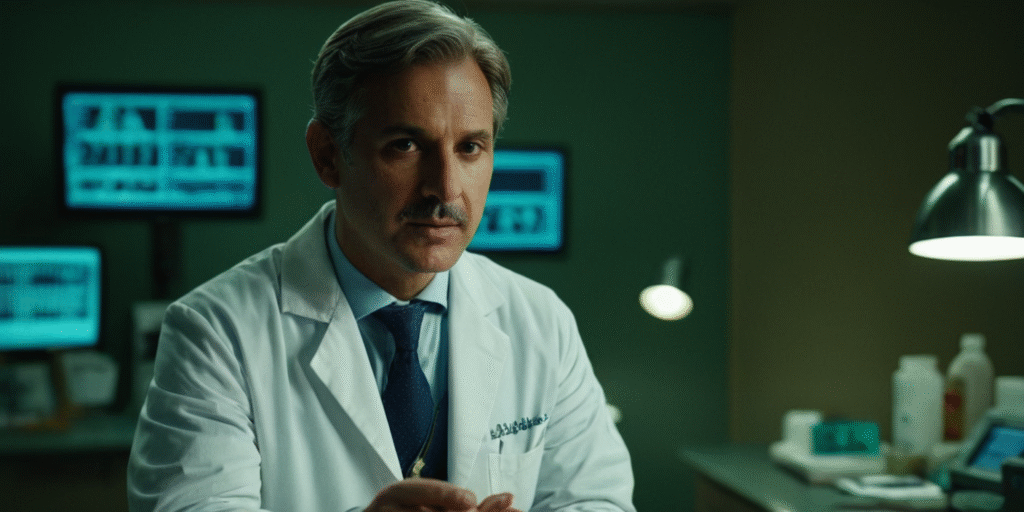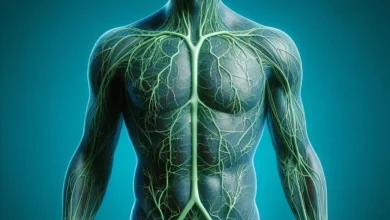

Can a Gastroenterologist Test for Food Intolerance?
Many people feel sick after eating certain foods. They may get bloated, gassy, or have stomach pain. These signs often point to food intolerance. But can a gastroenterologist test for food intolerance? Yes, and they play a big role in finding what foods cause your symptoms.
What Is Food Intolerance?
Food intolerance means your body has trouble digesting some types of food. It does not involve the immune system like a food allergy. It mostly affects the stomach and intestines. Common symptoms include:
- Gas and bloating
- Belly pain
- Diarrhea or constipation
- Feeling sick or tired after eating certain foods
Common foods that cause problems include milk, gluten (found in wheat), beans, and processed foods with additives.
Food intolerance often builds up over time. The symptoms may show up a few hours after eating. That delay can make it hard to know which food caused the problem. But with the right help, you can find and avoid the foods that hurt your gut.
What Does a Gastroenterologist Do?
A gastroenterologist is a doctor who treats problems in the digestive system. They check your stomach, intestines, liver, and pancreas. If you have belly pain, bloating, or bathroom problems often, you should see one. They treat problems like:
- Irritable bowel syndrome (IBS)
- Celiac disease
- Acid reflux
- Ulcers
- Crohn’s disease and colitis
They also look for food intolerances if your symptoms don’t have a clear cause. They use tests and diet changes to figure out what food your body can’t handle.
Can a Gastroenterologist Test for Food Intolerance?
Yes. A gastroenterologist can test for several types of food intolerance. They don’t rely on guesswork. They follow a step-by-step plan. First, they listen to your symptoms and health history. Then they choose tests to check for common food issues.
Some of the tests include:
- Breath tests – for lactose, fructose, and bacterial overgrowth
- Blood tests – to check for celiac disease and inflammation
- Stool tests – to look for infections or poor digestion
- Endoscopy – to check for damage inside your stomach or intestines
They may also ask you to follow an elimination diet to find trigger foods. This means cutting certain foods from your diet for a while and then slowly adding them back in.

How Do Breath Tests Detect Food Intolerance?
Breath tests give your doctor real proof of food intolerance. They check the gas your body makes after you eat sugar. These tests help find problems with lactose (milk sugar), fructose (fruit sugar), and bacterial overgrowth.
Here’s how a breath test works:
- You drink a liquid with sugar (like lactose or fructose).
- You breathe into a bag every 15 to 30 minutes.
- A machine checks your breath for hydrogen or methane gas.
If your gut can’t digest the sugar, bacteria in your gut make extra gas. That gas enters your blood and comes out in your breath.
A high level of gas means your body can’t break down the sugar. The test takes a few hours but does not hurt. It gives a clear answer and helps your doctor plan treatment.
Can a Gastroenterologist Check for Gluten Intolerance?
Yes. If you feel sick after eating bread, pasta, or other foods with wheat, your doctor may check for gluten problems. First, they test for celiac disease, which is a serious autoimmune condition. Your body attacks your small intestine when you eat gluten.
Tests for celiac disease include:
- A blood test to check for tTG antibodies
- A biopsy from your small intestine using an endoscope
If these tests come back negative, you might have non-celiac gluten sensitivity. This means gluten still causes symptoms, but there’s no damage to your intestines. There’s no specific test for this, so your doctor may ask you to follow a gluten-free diet to see if you improve.
Can Blood Tests Find Food Intolerance?
Not always. Blood tests can help rule out other conditions like celiac disease or inflammation, but they don’t work well for most food intolerances. Some companies sell IgG blood tests that claim to find intolerances, but medical experts don’t trust them.
Groups like the American Academy of Allergy, Asthma & Immunology say that IgG tests are not reliable. They often show false results. These tests may lead people to cut out healthy foods for no reason.
Gastroenterologists use blood tests only when needed. They do not rely on them alone to diagnose food intolerance.

How Can a Gastroenterologist Use an Elimination Diet?
An elimination diet is one of the best ways to find food intolerance. Your doctor helps you cut out certain foods that may cause trouble. After a few weeks, you add them back one by one. This helps find which food causes symptoms.
A gastroenterologist works with a dietitian to:
- Make a food list you can and cannot eat
- Track your symptoms daily
- Help reintroduce foods safely
- Make sure you get enough nutrients
This process can take a few months. It takes effort, but it gives solid answers. Doing it under medical care keeps you safe and helps avoid guessing.
Can a Gastroenterologist Diagnose IBS from Food Problems?
Yes. Irritable bowel syndrome (IBS) is a common condition that causes stomach pain, gas, and bowel changes. Food can trigger IBS, but the cause is not just one food. A gastroenterologist can check if your symptoms match IBS.
They test for other problems first to rule out disease. Then they may suggest the Low-FODMAP diet, which removes foods that ferment in your gut and cause symptoms.
IBS does not go away, but your doctor can help you control it with the right food and habits.
What Can You Expect at the First Appointment?
When you visit a gastroenterologist, they will:
- Ask about your health and eating habits
- Listen to your symptoms
- Feel your belly for pain or swelling
- Recommend tests (like breath or blood tests)
- Help you make a diet plan
- Set up a follow-up to review results
This visit usually lasts 30 to 60 minutes. Bring a list of your symptoms and what foods bother you. This helps your doctor find the problem faster.
How Fast Can You Get Test Results?
Each test takes a different amount of time. Here’s a general idea:
- Breath tests – within 1 day
- Blood tests – 1 to 3 days
- Stool tests – 3 to 5 days
- Biopsy results – 5 to 7 days
Your doctor will call you or ask you to return for a follow-up. If the results are not clear, they may try another test or a diet trial.
Should You See a Gastroenterologist or an Allergist?
If you have stomach problems, see a gastroenterologist. If you get itchy skin, swelling, or trouble breathing, see an allergist. Some people need both doctors, especially if they have mixed symptoms.
Gastroenterologists focus on the gut. They know how to test for intolerance and treat digestive issues. Allergists treat immune reactions to foods like nuts, shellfish, and eggs.
Are Online Food Intolerance Tests Worth It?
No. Most online tests measure IgG levels. These are not proven to show food intolerance. They often lead to false results and make people cut out safe foods.
Doctors and dietitians do not trust these tests. They may waste your money and hurt your health. You should always work with a licensed gastroenterologist to find real answers.
Can Children Get Tested for Food Intolerance?
Yes. Children can also suffer from food intolerance. If your child gets frequent stomach pain, bloating, or bathroom issues, they may need a pediatric gastroenterologist. Kids often outgrow some intolerances like lactose, but others may stay for life.
Doctors use smaller doses for tests and monitor children closely. They also make sure your child grows well and eats a healthy diet.
Conclusion
A gastroenterologist can test for food intolerance and help you feel better. They use proven tests like breath tests and elimination diets to find the real cause of your symptoms. Unlike online kits, they give you results you can trust. If you feel sick after eating, don’t guess, get help from a digestive expert. They will guide you through testing and treatment so you can enjoy food again without fear.
FAQs
Can food intolerance go away completely?
Some intolerances, like lactose, may improve over time. Others, like gluten intolerance, often last for life. A doctor can help you manage them better.
Can food intolerance make me gain or lose weight?
Yes. Poor digestion may cause weight loss, or eating “safe” but unhealthy foods may cause weight gain. A doctor can help you eat a balanced diet.
Is it okay to skip testing and just stop eating certain foods?
It’s risky. You might cut out important foods and not solve the real problem. Testing helps you avoid mistakes and stay healthy.




